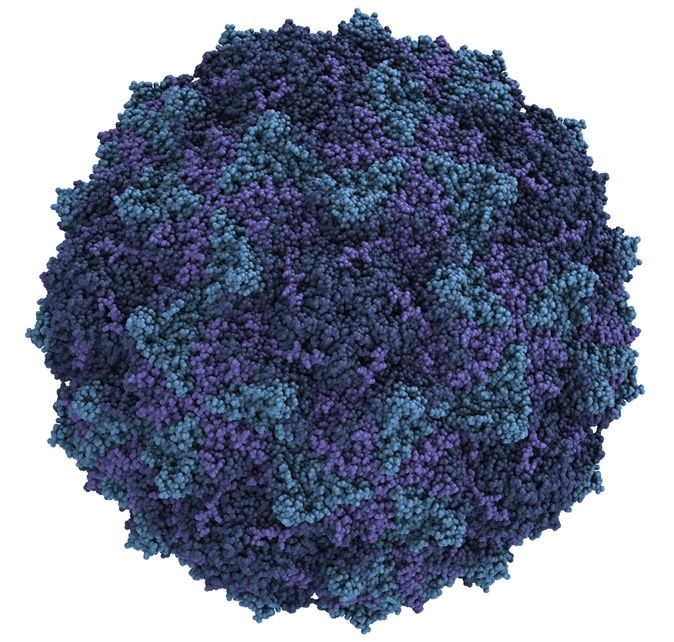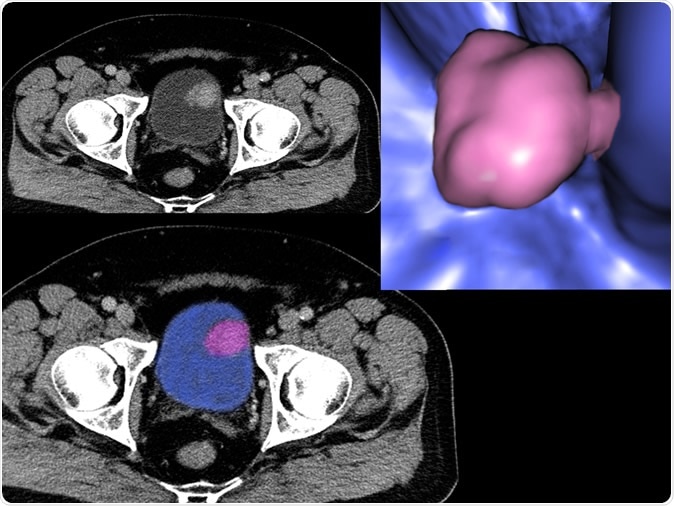Scientists in the UK have found a new way to treat bladder cancer, using a strain of one of the viruses that cause the common cold. The virus is called Coxsackie virus CVA21, and it was found to be oncolytic, or tumor-destroying. This new research demonstrated virus-mediated destruction of the tumor in all treated patients, and in one of them, the tumor disappeared completely.

Investigator Nicola Annels of the University of Surrey points out that while viruses are typically thought of in a negative sense, they can be used to enhance health and bring healing in the case of cancer cells. She says: “Oncolytic viruses such as the coxsackievirus could transform the way we treat cancer and could signal a move away from more established treatments such as chemotherapy.”
In this study titled, "Viral targeting of non-muscle invasive bladder cancer and priming of anti-tumour immunity following intravesical Coxsackievirus A21", CVA21 was used to treat 15 patients who had bladder cancer that had not yet spread into the muscular wall of the bladder. This is called non-muscle invasive bladder cancer (NMIBC) and is found in one out of every 10 cancer patients in the UK. About 10,000 people are found to have the disease each year.

Bladder cancer, CT - Illustration Credit: Semnic / Shutterstock
Treatment strategies
It is difficult to treat this cancer because of its location. One technique is called transurethral resection. A cutting instrument is passed through the urethra, the tube that takes urine out of the body, to remove all the visible part of the cancer. However, this has been associated with recurrence in 50% to 70% of patients. Moreover, 10% to 20% of patients develop progressive cancer over the next 2-5 years.
A second treatment strategy is to stimulate the immune response to the tumor using a live bacterium called Bacille Calmette-Guerin, or BCG, which has already been widely used to confer childhood immunity to tuberculosis. However, it is ineffective in one out of three bladder cancers, while another third of patients experience severe adverse effects following its use.
How CVA21 acts on bladder cancers
Typical bladder cancers lack immune cells, and are ‘cold’ with respect to the immune system. CVA21 acts by infecting cancer cells and then undergoing replication. It then bursts open the cell so that the new virus particles can escape.
During this process, the coxsackie virus also activates various genes concerned with inflammation and immunity, making the tumor immunologically ‘hot’. Such tumors are less likely to grow significantly before they are eliminated by the immune system.
In treated patients, the shed virus was detected in urine tested on alternate days. This proves that the virus continues to infect new cancer cells within the bladder once it has killed the cells first infected.
In the current study, CVA21 was run into the bladder of 15 patients, one week before they were to have their tumors removed surgically. Of the 15, six received only the virus, while the next nine patients also got a dose of mitomycin C. This is a known chemotherapy drug, but its dosage was reduced to subtherapeutic levels. Its administration was intended to increase the expression of the molecule ICAM-1 on the surface of the cancer cells. This molecule attracts and binds the CVA21 virus and thus enhances its oncolytic activity.
After the surgery, tissue biopsy samples showed that the CVA21 virus selectively attacked only the cancer cells in the bladder, while sparing all normal cells. In all cases the tumor showed bleeding and inflammation, indicating that it was being attacked by the virus.
In one of the 15 patients, the tumor disappeared completely and was not found during surgery. There were no significant adverse effects or toxicities reported in any patient.
The benefits of CVA21 for NIMBC immunotherapy thus include a good safety profile, selective targeting of bladder cancer cells by the virus, viral replication within the tumor cells with resulting tumor cell death, and virally-mediated tumor inflammation to induce immune attack of the tumor, all leading to its destruction.
Researcher Hardev Pandha explains the motivation for the current work: “Non-muscle invasive bladder cancer requires an intrusive and often lengthy treatment plan. Current treatment is ineffective and toxic in a proportion of patients and there is an urgent need for new therapies. [With coxsackievirus] reduction of tumor burden and increased cancer cell death was observed in all patients, showing its potential effectiveness.”
Journal reference:
Viral targeting of non-muscle invasive bladder cancer and priming of anti-tumour immunity following intravesical Coxsackievirus A21, Nicola E Annels, David Mansfield, Mehreen Arif, Carmen Ballesteros-Merino, Guy R Simpson, Mick Denyer, Sarbjinder S Sandhu, Alan Melcher, Kevin J Harrington, BronwYn Davies, Gough Au, Mark Grose, Izhar N Bagwan, Bernard A. Fox, Richard G Vile, Hugh Mostafid, Darren Shafren and Hardev Pandha, Clin Cancer Res July 4 2019 DOI: 10.1158/1078-0432.CCR-18-4022, http://clincancerres.aacrjournals.org/content/early/2019/06/29/1078-0432.CCR-18-4022